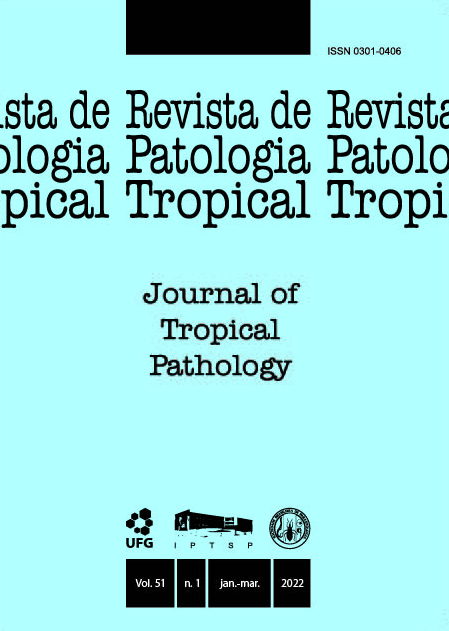Educational level and positive serology for dengue. a knowledge, attitudes and practices study in Huánuco, Peru
DOI:
https://doi.org/10.5216/rpt.v51i1.70543Abstract
Dengue is a worldwide spread arboviral disease. Huánuco region is an endemic area for dengue. Understanding the influence of Knowledge, Attitudes and Practices (KAP) in dengue endemic areas can provide important insight for improving public health policies. The purpose of this study was to understand the KAP about dengue in the marginal urban city of Tingo Maria, district of Rupa-Rupa, a rain forest area in Huánuco region and its association with positive serology for dengue. An analytical, retrospective, cross-sectional study was carried out in which a randomized sample of 112 people were evaluated using a semi structured questionnaire and tested for IgG against dengue virus. Most participants recruited were from marginal urban settlements. The median age was 38 years and 64% were female. A bivariate analysis showed an association between educational level and serological positivity. Over 95% of participants with only primary school education had a positive serological test for dengue. No statistical significances were found between attitudes towards dengue control initiatives (p=0.221), preventive practices against dengue (p=0.773), and the level of knowledge about dengue (p=0.073). Although attitudes, preventive practices and level of knowledge were not related to positive serology in dengue cases, educational level showed an association with serological positivity for dengue.
KEY WORDS: Dengue; knowledge; attitude; practice; education; Peru.
Downloads
Downloads
Published
How to Cite
Issue
Section
License
The manuscript submission must be accompanied by a letter signed by all authors stating the full name and email address, confirming that the material has not been published or is under consideration for publication elsewhere, and agreeing to transfer copyright in all media and formats for Journal of Tropical Pathology. The authors will not be paid for published articles. They are solely responsible for the content of those articles, even if the Editor holds the right to adjust them to the norms of the journal.
The reviewers will not be paid for the peer review process.

